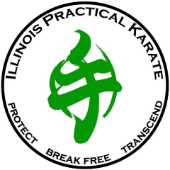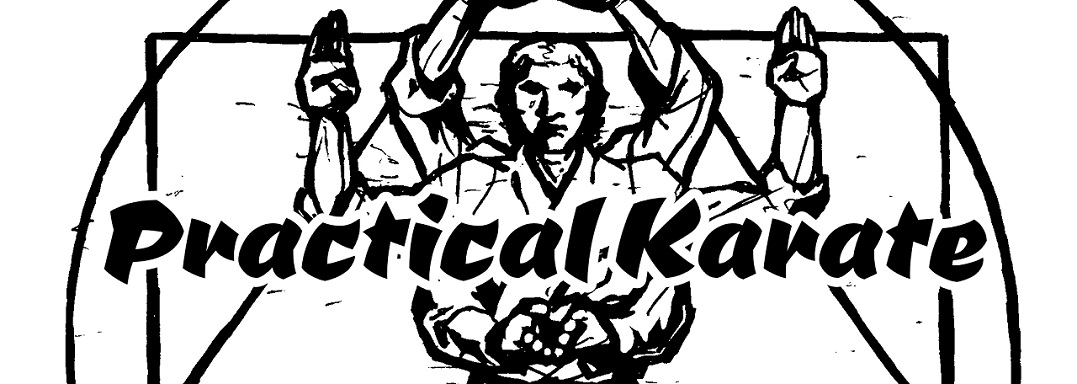-
Posts
2,828 -
Joined
-
Last visited
Everything posted by Wastelander
-
Sorry about that--he said "finalize," not "complete," but they mean the same thing, to me. If you "finalize" something, then you have completed it. Regardless, I do know that there used to be a Shorinkan dojo in Houston, but it has closed. I'm not sure whether the instructor moved, or if he is still in the area, but asking local martial artists may give you a lead. You can check with the Shorinkan, of course, but since they still show the dojo on their website, they may not know.
-
You could contact the Shorinkan (Nakazato Shugoro's organization) and ask about him. I'm part of that organization, but I've never heard of him. His biography is disconcerting to me because it talks about "completing" his training by studying Shorin-Ryu. There is no such thing as "completing" karate training, and it looks like he may have done all this bouncing around so he could found his own style. I would definitely check with the Shorinkan regarding his credentials and knowledge. Competition records are not really relevant, in my opinion, and neither are movie credits.
-

Karate or Judo/BJJ
Wastelander replied to njd's topic in Choosing a Martial Art, Comparing Styles, and Cross-Training
Judo is fantastic for staying on your feet, slamming your attacker on the ground if you get tangled up, and defending yourself on the ground if you end up there. Unfortunately for judoka, people don't just grab you and never throw a punch in the real world. The karate that most people learn is fantastic for defending against strikes and hitting people really hard/fast. Unfortunately for karateka, people don't just throw punches and never grab you in the real world. If self defense is your goal, you really need both a striking base and a grappling base that you can work together. -

Karate or Judo/BJJ
Wastelander replied to njd's topic in Choosing a Martial Art, Comparing Styles, and Cross-Training
I generally recommend to anyone practicing a striking art to also do some cross-training in a grappling art of some kind. For me, it was judo, and it has worked out very well for me. You said you enjoy your art, your training, and your instructors, so I don't see why you would need to completely drop it. I do think that a grappling art would benefit you, though, because you will learn valuable self defense skills and pressure test them against resisting opponents. Cross-training, while keeping Tang Soo Do as your core art, sounds like the best option, to me. -
You may have to ask around at the dojo you do have in your area to see if they know anyone teaching Shorin-Ryu, if you're that dead-set on a style, because they might be teaching out of their house. Then again, they may not be teaching anywhere, anymore, and you'll have to take a look at what you do have available in your area.
-
Beef jerky will work fine, but it's loaded with sodium, so be sure to drink extra water.
-

10 Years on Staff for Heidi (ninjanurse)
Wastelander replied to Patrick's topic in KarateForums.com Announcements
Congratulations and thanks, Heidi! -
Welcome to the forum!
-
Last week I was sent to the Los Angeles area for work, and since it was going to interrupt my training I knew I had to do something other than hotel room kata. I looked around at the martial arts schools in the area, and ended up contacting a Japanese Goju-Ryu (Seiwakai) dojo in Santa Monica. The person running the website was a student of the instructor there, but no longer lives in the area himself, so he sent me his sensei's contact information and I was able to arrange to train with them. http://s22.postimg.org/pcosxp1i9/Noah_at_World_Budo_Arts.jpg Myself (white belt) with Vassie Naidoo, Shihan, and his students. I enjoyed working with Vassie Naidoo, Shihan, and all of his students--they train hard, they are friendly, and they have strong karate. They also share their dojo with a Kyokushin group (several of the Goju-Ryu students cross-train with the Kyokushin group, as well) and I was able to meet some of them, too. I left with an open invitation to return, and I gave them an invitation to train with us if they are ever in the Phoenix area. If anyone is interested in more details about the training session itself, I'm putting it up on my blog. I just wanted to share a good experience here about karate bringing people together
-
I eat something small before I start my weight training and don't eat again until after karate is over. That said, I don't have the gaps in between that you have. Maybe you could throw a protein bar in your bag to snack on?
-
I know Iain Abernethy has some videos of applications for Enpi/Wanshu, so those should be easy enough to find on his Practical Kata Bunkai channel on YouTube. John Titchen has this one for the opening sequence: http://www.youtube.com/watch?v=lAhe_yfjYbk This guy made a whole series of videos on his applications for Enpi, and there are definitely some interesting ideas and concepts explored in them--here is the playlist:
-
Not sure if you were asking me or the OP. In my system we have a total of 19, which is way too many, in my opinion. This is the list of kata, in the order they are typically taught in my system: Kihon Ippon Kihon Nihon Kihon Sanbon Fukyuu no Kata Naihanchi Shodan Naihanchi Nidan Naihanchi Sandan Pinan Shodan Pinan Nidan Pinan Sandan Pinan Yondan Pinan Godan Passai Sho Passai Dai Kusanku Sho Chinto Kusanku Dai Gojushiho Gorin
-
My instructor requires his students to know every kata in our system before he will even test them for shodan. Our Gojushiho tends to be taught somewhere around 3rd or 2nd kyu, typically. It's a very awkward kata, for me, so i feel your pain.
-
I'm not terribly fond of nunchaku, but I learned to strike with them on a BOB dummy wearing kendo armor. The follow-through is really the key to not hitting yourself, I found.
-
The only time I've ever trained on a beach was on a trip to Hawaii, and I discovered that there are random chunks of coral and volcanic rock hidden in the sand that will attack you. Also, salt water has a unique stink to it when it soaks a sweaty gi!
-

Member of the Month for June 2013: Tzu-Logic
Wastelander replied to Patrick's topic in KarateForums.com Announcements
Congratulations! -

4th Kyu Grading.
Wastelander replied to Harkon72's topic in Share Your Testing, Grading, or Promotion
Well done--congratulations! -
I really see plyometrics as supplementary exercise for when you don't have access to weights. If there are any days where you would normally be training but don't have weights available, I would do plyometrics then. The only plyo exercises I really do are burpees and plyo push-ups, and I only do them on the days I don't do bench press or days we do them in class.
-
This schedule definitely looks better. I lift before karate--just make sure you're staying hydrated! As far as speed goes, as long as you do your lifts quickly you will promote fast-twitch muscle development. Remember that the weight may not move quickly if it's heavy, but if you are trying to move it fast, that's what counts.
-
The length is really up to personal preferences, organization guidelines, and competition rules. I personally like my belt to go down to mid-thigh, or an inch or two shorter, but I've seen people with belts that only come down about three inches from the knot, and people with belts that touch their knees. In some organizations, there is a guideline in place, but not in ours. In some competition formats, like WKF or judo competitions, there are limits on how long or short they can be. With regard to the material, I would always go with cotton or hemp--the satin doesn't stay tied and flakes apart.
-

GoJuRu Karate Sutdent - New to the boards!
Wastelander replied to Benjamin Young's topic in Introduce Yourself
Welcome to the forum, Benjamin! We actually have several Goju-Ryu practitioners here, and I'm sure that they will be able to answer your questions much more thoroughly than I can. I will say that Goju-Ryu is a great art that stems from Naha-te (fighting arts from Naha, Okinawa), while Taekwondo is based on Shotokan, which stems from Shuri-te (fighting arts from Shuri, Okinawa). In addition to their regional differences, their Chinese influences were quite varied, so while there are many common traits between them, they are also very different. Enjoy your training! -

Power workout for kicking and punching
Wastelander replied to chrisw08's topic in Health and Fitness
I will readily admit that I am not an expert, but to me it looks like you have way too much biceps work, and not nearly enough leg or back work. You also have to balance your body's strength, or you can end up developing structural issues and posture problems, and from a karate (kicking/punching) power standpoint, I don't think you're going to get what you're after with this routine. I would honestly scrap the biceps work, completely, and do pull-ups instead (gets biceps AND lats). You're already doing shoulder presses, which will balance that out. The upright rows would also be replaced by bent-over rows, and alternating single-arm dumbbell presses or push-up progressions would be my balance exercise. I highly recommend deadlifting SOMETHING (tire and heavy bag flipping count, in my book), and if you are doing all of this without a barbell, you'll want to include ab work (I like weighted M-crunches) to balance your back work. With just dumbbells for weight, you're going to be limited on what you can do with your legs, so I would start seriously working bodyweight squat and lunge progressions until you can get a barbell to squat with. -
A friend and former training partner of mine worked at a facility for dementia patients, and she had to use her training fairly regularly. We trained in a karate school that incorporated some judo into the curriculum, and it worked well enough for her. I think that just about any grappling art that focuses on control (wrestling, judo, sambo, Japanese jujutsu, etc.) would work fine as long as you trained them in a way that takes into account the way you need to use it. Find a grappling art that focuses on controlling your opponent, and then talk to the instructor to make sure you drill it appropriately.
-
With regard to Stronglifts, I have never been a strong person, but I have most definitely gotten stronger in the short time I have been doing it, despite not being as consistent as I should be. You need days of rest or your body will not recover from your workouts and you will not get stronger, though. I do my Stronglifts workouts on the same days I train at the dojo, but my dojo has a rack and Olympic set so that is easy to do. If you can do your lifting on the same day, I would, so that you can rest in between days. I would also cut out the running on Saturday, but that's just me.


